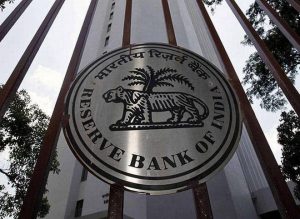 The government has made an announcement that all cooperative banks and multi-state cooperative banks will be brought under the supervision of the Reserve Bank of India (RBI). The move which will be applicable to 1540 such banks, is aimed at providing comfort to their depositors, union minister Prakash Javadekar has said in a press briefing, following a cabinet meeting.
The government has made an announcement that all cooperative banks and multi-state cooperative banks will be brought under the supervision of the Reserve Bank of India (RBI). The move which will be applicable to 1540 such banks, is aimed at providing comfort to their depositors, union minister Prakash Javadekar has said in a press briefing, following a cabinet meeting.
“A depositor will be assured that his money is safe. An ordinance in this regard will be brought. RBI’s powers as they apply to scheduled banks will apply for cooperative banks as well,” he added. in
Banking Frontiers has spoken to a number of representative voices in the cooperative banking sector to know the significance and implications of this move:
Jyotindra Mehta:
President, NAFCUB and Chairman, Gujarat Urban Cooperative Banks Federation
“The government had already taken the decision in February 2020 to bring all the co-operative banks under the regulatory supervision of RBI. Although an amendment to the Banking Regulation Act had been moved in the budget session of the Parliament, the bill could not be passed due to the Covid lockdown and hence, the need for an ordinance at this juncture. In my view, this is a significant step towards strengthening the financial architecture in India. There are over 1500 cooperative banks in the country with over 8 crore depositors and estimated deposits of Rs4.84 lakh crore, making them systemically significant. Since this sector had been under dual regulation involving the Registrar of Cooperatives, RBI did not have adequate jurisdiction over these banks. Now, RBI will ensure corporate governance in UCBs and it will have enough powers to safeguard the interests of the retail depositors in cooperative banks. We believe that bringing the sector under complete RBI regulation at par with other scheduled commercial banks will go a long way in improving the health and operating practices in the sector. It will also provide comfort to depositors.
Some of the UCBs may need to raise capital from their members to mitigate their asset quality risks and further, a consolidation in this space may get a momentum involving the merger of weaker banks into stronger ones.
Umesh Chand Asawa:
A member of the managing committee of Indian Banks Association (IBA) as cooperative banks’ representative; as well as Managing Director & CEO, A.P. Mahesh Cooperative Urban Bank
In case of irregularities, the RBI now can remove the board of directors and appoint its own administrator without the intervention of registrar. Now onwards, prior approval of the RBI will be a must for the appointments of MD and CEO of these banks. As per the Banking Regulations Amendment Act 2020, all cooperative banks have already been brought under RBI control. Powers of the cooperative department will remain the same and the RBI need not have to write to the cooperative department for suppression of boards of urban cooperative banks.
Ratnakar Deole:
Cooperative banking expert and ex-RBI executive
This is about Banking Regulations Act Amendment Bill 2020 already passed by Lok Sabha but pending with Rajya Sabha as the Parliament was adjourned because of the covid lockdown. I feel the ordinance will help expediting the reconstruction of PMC Bank by exercise of powers now given to RBI under the amendment. I hope the position will be clear by June end. The whole Banking Regulations Act is made applicable to cooperative banks. The RBI will have all powers of merger, amalgamations, reconstruction etc wherever considered necessary. The Registrar of Cooperatives will have powers relating to the management, ie conducting elections to the boards of directors as per the criterion prescribed by the RBI.
Vinod Dadlani:
CEO, Kalupur Commercial Cooperative Bank
The genesis of this proposed ordrinance is the introduction of the Banking Regulations Act (Amendment) Bill 2020 wherein a number of clauses of Sec 56, that excluded applicability of many of the sections of the Act, were removed, so that the powers of the RBI were extended to cooperative banks. Whenever NAFCUB and other representative organizations asked RBI to take swift steps to protect the interests of depositors when a cooperative bank went into difficulties in the same manner as it acted in respect of commercial banks, the RBI would point out that it could not do because it did not have adequate powers. With the proposed amendments, the RBI will have almost all the powers to regulate all UCBs. UCBs may now face more stringent regulatory regime, which may be for their good in the long run. The RBI will also be able to address delinquency in UCBs in incipient stage so that these banks either recover or get merged/taken over in good time. The public trust in UCBs should also improve by these amendments.
The boards of UCBs can now be superseded by the RBI without RCS/CRCS approval. Appointments of CEOs will be with prior approval of the RBI and governance and professionalism will improve in the UCBs. It is possible that these banks may now issue shares at premium, as also issue preference shares and may even go for listing. I am of the view that there may be restrictions on refund of share money.







